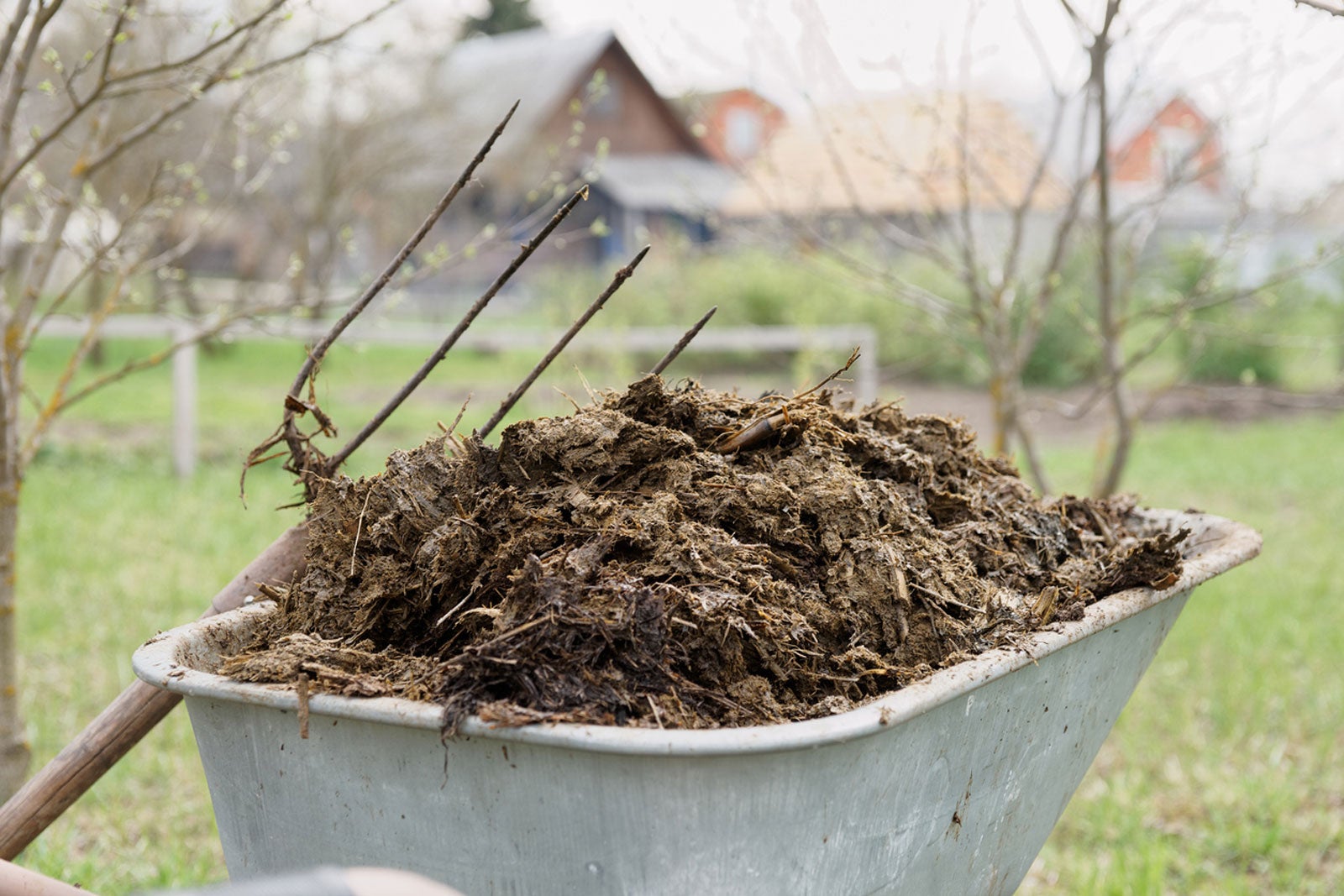The Benefits Of Manure Compost In Your Garden


Sign up for the Gardening Know How newsletter today and receive a free copy of our e-book "How to Grow Delicious Tomatoes".
You are now subscribed
Your newsletter sign-up was successful
Using manure compost in the garden has numerous benefits. Manure is packed with nutrients that plants need, like nitrogen. Using manure as fertilizer keeps plants healthy and green.
How Manure Affects the Soil
In order to maximize the benefits of manure compost in the garden, proper application is vital. One of the best ways to use manure as plant fertilizer is by mixing it in with compost. Composting manure eliminates the possibility of burning the plants. Another option is to till it into the soil prior to spring planting, such as during fall or winter. Generally, fall is the best time to use manure in the garden. This allows plenty of time for the manure to break down, eliminating the threat of burning plants in the garden. Well-aged manure on its own also makes a great fertilizer for garden plants. Nearly any kind of manure can be used, depending on where you live, as some manure is more readily available than others. However, it is not recommended that anyone use cat or dog manure. These types of manures are unsuitable for the garden or the compost pile, as these are likely to carry parasites. Generally, horse, cow, and chicken manure are the most commonly used for manure fertilizer. Some people also use sheep and rabbit manure. While most types of manure can be purchased from garden centers, oftentimes, you can find farmers or horse owners that are more than happy to give it away.
The Effects of Manure on the Soil
The effects of manure on the soil are beneficial as well. As the soil absorbs manure, nutrients are released. This enriches the soil, which in turn helps the plants. The most important benefit of using manure in the garden is its ability to condition the soil For instance, mixing manure with sandy soils helps to retain moisture levels. Adding manure to compacted soil helps loosen the soil. Manure produces increased soil carbon, which is an important source of energy that makes nutrients available to plants. Other benefits of manure include reduced runoff and leaching of nitrates in the soil.
Using Composted Manure as Mulch
Did you know that using composted manure as mulch is also beneficial? Because manure is considered a slow-release plant fertilizer, it provides small amounts of nutrients over an extended period. This makes it an acceptable form of mulch for plants. However, make certain it is not fresh manure. Fresh manure is too strong for plants, as it contains excessive amounts of nitrogen, which can burn the plants. In addition, some manure fertilizer consists of urine as well, which is also high in nitrogen. Too much nitrogen on plants can be detrimental for them. The benefits of manure as plant fertilizer and the effects of manure on the soil makes its use in the garden worth consideration.
Sign up for the Gardening Know How newsletter today and receive a free copy of our e-book "How to Grow Delicious Tomatoes".

Nikki Tilley has been gardening for nearly three decades. The former Senior Editor and Archivist of Gardening Know How, Nikki has also authored six gardening books.